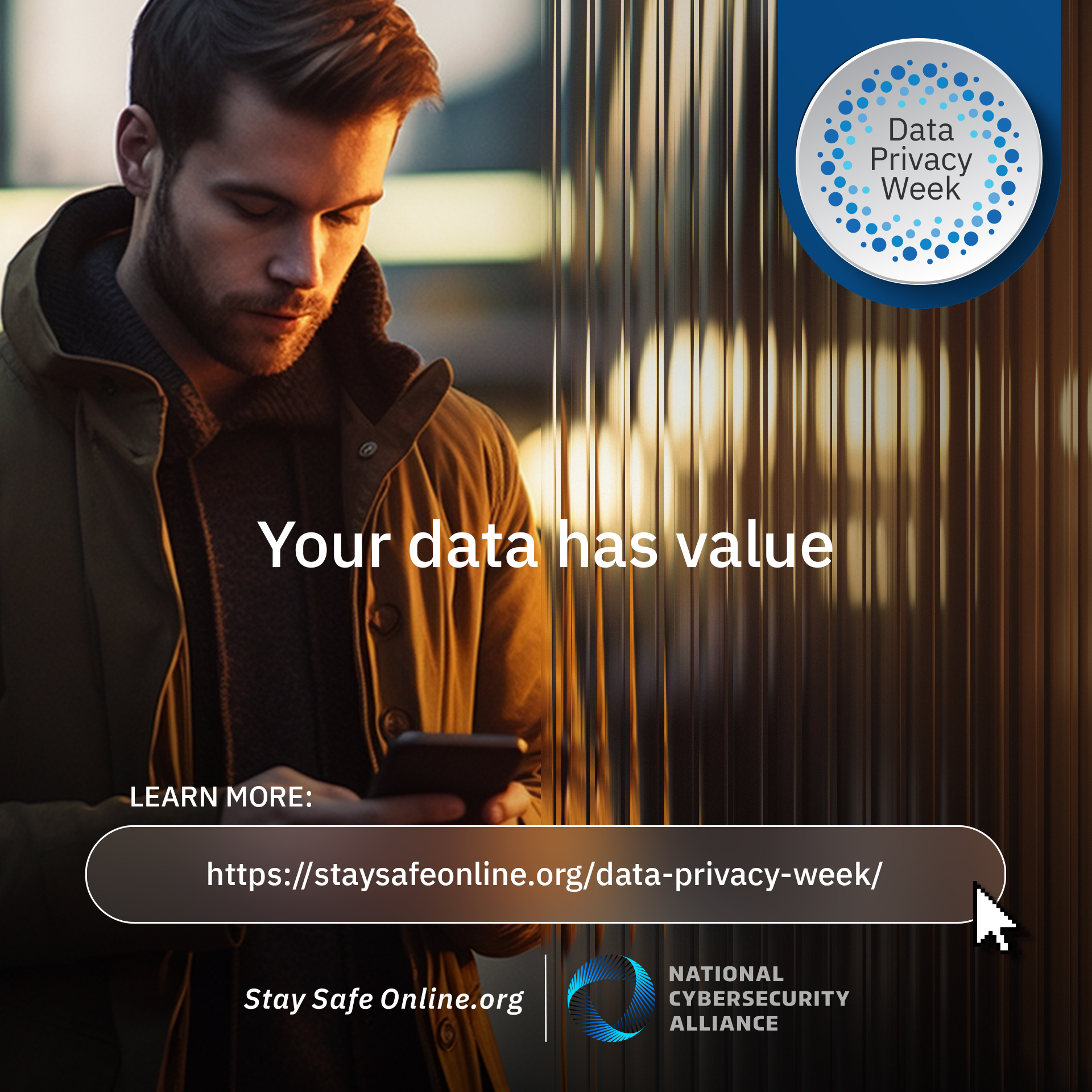
Every year, Data Privacy Week reminds us of the importance of protecting our personal information online. This year’s theme, “Take Control of Your Data,” highlights the fact that while we can’t control every detail about how our data is shared, we do have the power to take significant steps toward safeguarding it.
From the apps we use to the websites we visit, our digital footprint grows with each interaction. This data often includes sensitive information such as Social Security numbers, health details, and even personal preferences. While these details might seem minor, they are valuable and deserve protection.
To help you get started, here are some practical tips to protect your data and enhance your online privacy:
1. Understand the Value of Your Data
When signing up for new apps, websites, or services, you’re often asked to provide personal information. These requests might include access to your location, contacts, or even your photos. Before sharing, ask yourself:
- Is the service worth the data I’m giving up?
- Can I use this app or service with limited data sharing?
- Why does this app need this information (e.g., does a game really need access to my contacts)?
Additionally, if you haven’t used an app, service, or account in months, consider deleting it to reduce unnecessary data collection.
2. Adjust Privacy Settings to Your Comfort Level
Nearly every app, account, and device offers privacy settings, but it’s up to you to review and adjust them. By taking a few moments to explore these settings, you can control what data is shared and limit unnecessary exposure. Start small, updating settings on a few frequently used apps, and gradually expand to others.
Need help? The National Cybersecurity Alliance’s Manage Your Privacy Settings page offers free, step-by-step resources to help you.
3. Protect Your Data with Strong Cybersecurity Practices
Managing privacy is only one part of the equation—securing your data is equally important. Here are four essential cybersecurity tips to protect your information:
- Use strong, unique passwords for every account. A password manager can simplify this process and securely store your credentials.
- Enable multifactor authentication (MFA) wherever possible. This provides an added layer of security even if your password is compromised.
- Keep your devices and apps updated. Automatic updates help patch vulnerabilities and keep your system secure.
- Learn to recognize phishing attempts. Phishing messages can come in the form of emails, texts, or even social media messages, so stay vigilant.
Why Data Privacy Matters
At BOAZ, we understand the importance of protecting your privacy. This Data Privacy Week, we’re focusing on educating you about data privacy and how to protect your personal information.
We encourage you to become a Data Privacy Week Champion! Champions receive free resources, including tools and tips to help their families, friends, and communities stay safer online.
For more information, visit the official Data Privacy Week page.